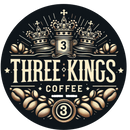Coffee is a beloved beverage for many, providing a much-needed energy boost to start the day or power through a busy afternoon. However, consuming too much coffee can lead to a phenomenon known as a “coffee high.” Let’s explore what happens when you drink too much coffee and how to manage its effects.
What is a Coffee High?
A coffee high occurs when you consume a large amount of caffeine, leading to heightened alertness and energy. This can be beneficial in moderation, but excessive intake can cause a range of side effects. The primary component responsible for this high is caffeine, a natural stimulant found in coffee beans.
Symptoms of a Coffee High
-
Increased Heart Rate and Blood Pressure Caffeine stimulates the central nervous system, which can lead to an increased heart rate and elevated blood pressure. This is why you might feel your heart pounding after drinking too much coffee1.
-
Jitters and Nervousness One of the most common symptoms of a coffee high is feeling jittery or anxious. This happens because caffeine blocks adenosine, a neurotransmitter that promotes relaxation, and increases the release of adrenaline2.
-
Insomnia Drinking coffee late in the day can interfere with your sleep patterns. Caffeine can stay in your system for several hours, making it difficult to fall asleep and stay asleep3.
-
Digestive Issues High doses of caffeine can lead to digestive discomfort, including stomach upset, acid reflux, and diarrhea. This is because caffeine increases the production of stomach acid4.
-
Frequent Urination Caffeine is a diuretic, which means it increases urine production. This can lead to frequent trips to the bathroom and potential dehydration if not managed properly.
-
Headaches and Dizziness While moderate caffeine intake can relieve headaches, excessive consumption can cause them. This is due to caffeine’s vasoconstrictive properties, which can affect blood flow to the brain.
Managing a Coffee High
If you find yourself experiencing the symptoms of a coffee high, here are some tips to manage it:
-
Stay Hydrated Drink plenty of water to help flush caffeine out of your system and prevent dehydration.
-
Eat a Balanced Meal Eating food can help slow the absorption of caffeine and stabilize your blood sugar levels.
-
Get Moving Light exercise can help burn off some of the excess energy and reduce feelings of jitteriness.
-
Avoid More Caffeine Give your body time to metabolize the caffeine you’ve already consumed before drinking more coffee or other caffeinated beverages.
-
Practice Relaxation Techniques Deep breathing, meditation, or gentle stretching can help calm your nervous system and reduce anxiety.
Conclusion
While coffee is often enjoyed for its taste and stimulating effects, it’s important to be mindful of how much you consume. Understanding the symptoms of a coffee high and knowing how to manage them can help you enjoy your coffee without the unwanted side effects. So, the next time you reach for that extra cup, remember to listen to your body and enjoy your coffee in moderation.

